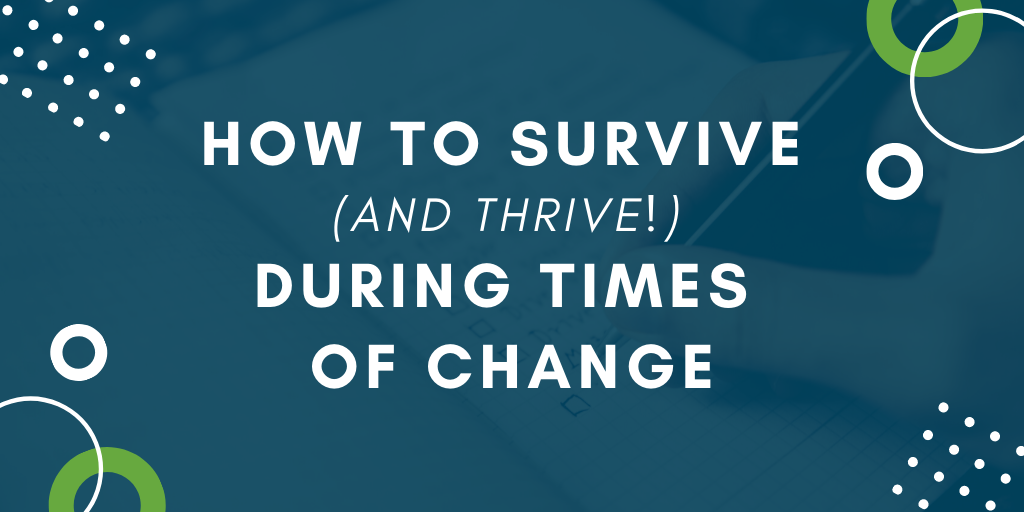Blog
How to Survive (and Thrive!) During Times of Change
April 07, 2020

According to the Greek philosopher Heraclitus, “the only constant in life is change.” While this seems paradoxical, we are now experiencing change, sometimes on an hourly basis.
I thought this would be an ideal time to talk about the emotions that change can evoke, and to recognize that we all have different preferences for handling change, but that we can learn to adapt.
Emotions of Change
The changes to your life over the last few weeks might have evoked strong emotions, including fear, sadness, confusion, anger, anxiety, or even excitement and enthusiasm. Change brings about both positive and negative emotions, and we all will feel and respond differently. Such responses might include a range of behaviours from denial and resistance to acceptance and action.
Steven Stowell, the Founder and President of the Center for Management and Organization Effectiveness, points to four emotional experiences associated with change. He discusses our ability to deal with change by taking control of the situation, by influencing others, or by merely managing ourselves – our emotions, beliefs, and behaviours.
The critical point is that we all respond differently to change, and more importantly, we respond differently to each other.
Change Preferences
It might be interesting to know that we all have different “preferences” for how we deal with change, and that one preference or style is not better or worse than another.
This is particularly important to remember when we are going through something together. In essence, we will handle things differently, which can sometimes lead to frustration and anger, but that we can also learn from each other.
The Change Style Indicator is a self-assessment that provides insight into how we personally deal with change and how to understand others. You might find you are conservative whereby you prefer gradual changes that are well explained, and that you need a lot of detail.
On the other hand, you might be someone who enjoys radical change, sometimes for the sake of it! In both cases, managing your own emotions and needs could be difficult when you’re dealing with someone who responds differently to change.
Adapting to Change
Adapting to change requires that we be patient with each other by recognizing that we all have different responses. Our preferences allow us to see situations from different perspectives.
For example, if you are a blue-sky thinker that embraces vast change, you might be frustrated by someone who sees change entirely differently–someone that prefers gradual, slow, or no
change. Alternatively, the person who doesn’t like change might be frustrated by the blue-sky thinker – those types often don’t understand the fine details required to make things happen.
Given that we are all being asked to change how we work, how we communicate, and how we remain productive, it’s important to take care of each other. Recognize how you are responding to new situations, and what your co-workers need from you.
Be patient. Communicate with intention and be aware that not everyone will be experiencing change in the same way.
Are you ready to understand how you adapt to change and build the skills you need for the future? Right now we’re offering a special limited-time discount for our online courses! All our regularly priced $999 courses are now available at $649. Learn more:
Managing Change – Change Style Indicator (CSI)
Resilience Assessments- Hardiness Resilience Gauge (HRG)
Feel free to contact us with any questions you may have!
